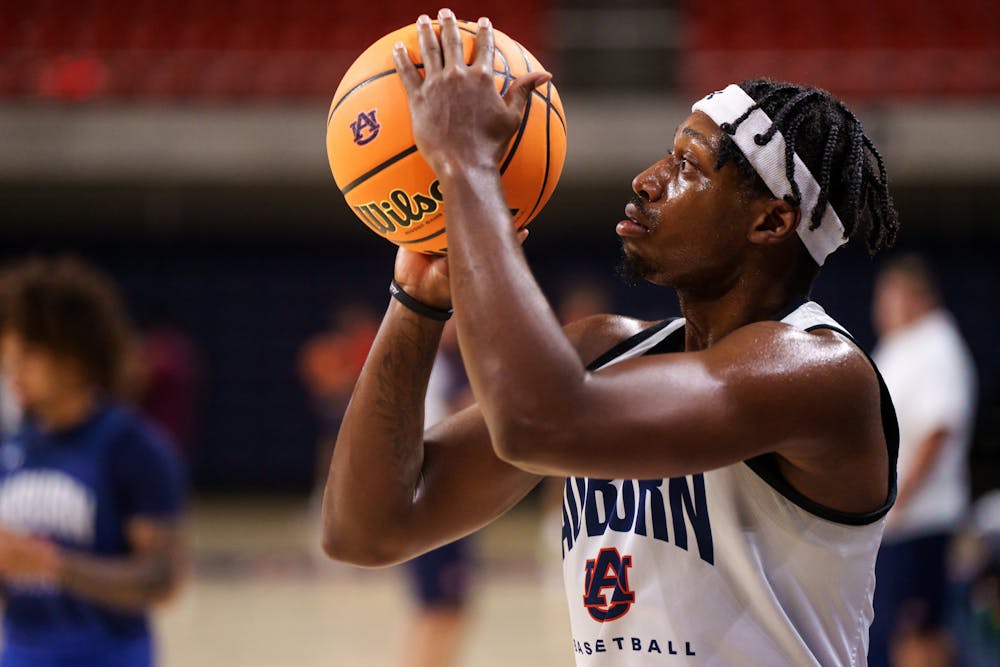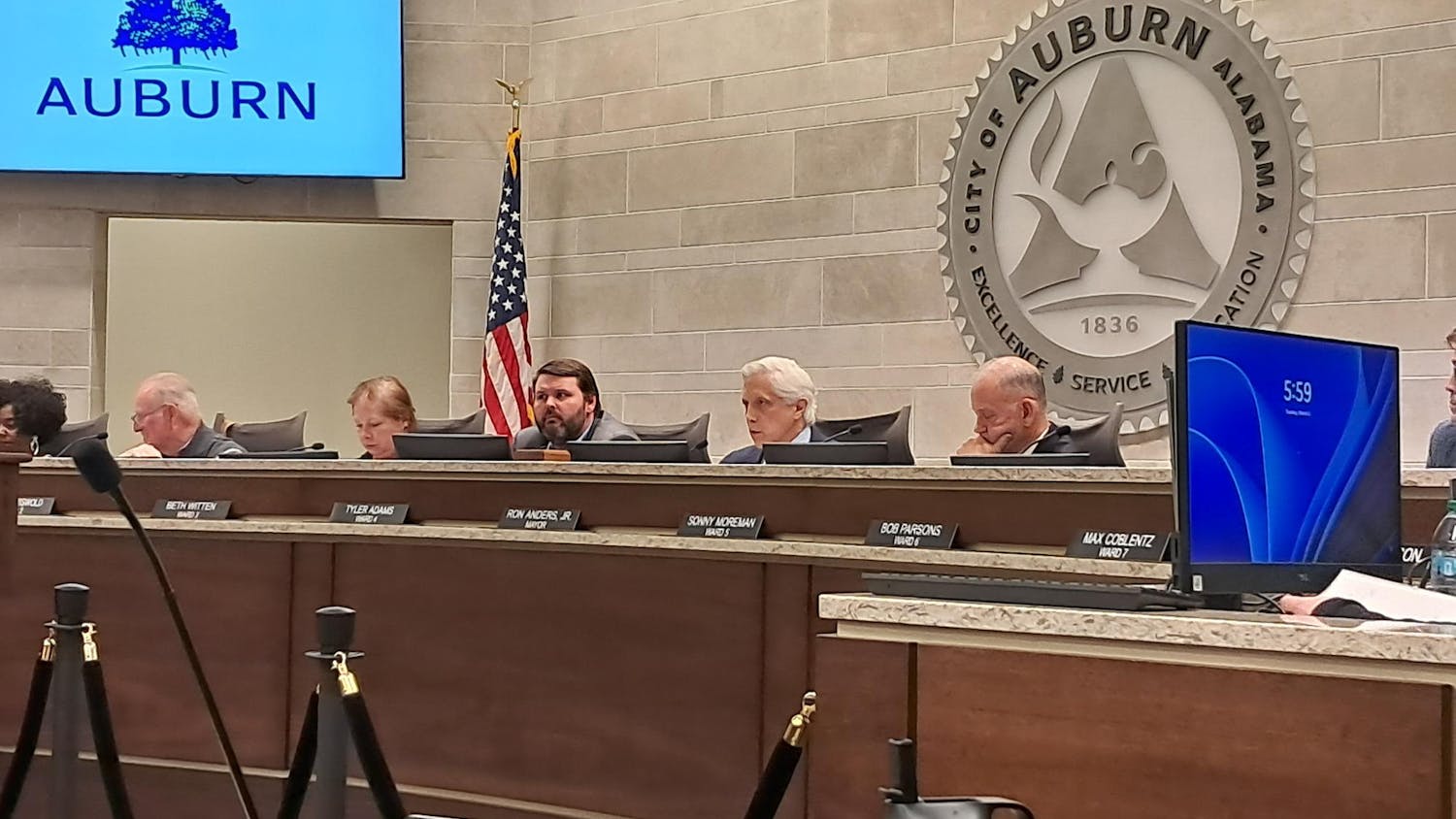Auburn’s men’s basketball underwent major roster changes this offseason, heavily relying on the transfer portal to fill its gaps.
With mixed reactions from fans, coaches and players, the transfer portal is an integral part of today’s game. Auburn’s Director of Recruiting and Scouting Ian Borders shared how college basketball has evolved from strictly signees to primarily transfers.
“I was a former high school coach, so I still am very invested in the high school game,” Borders said. “I still think that high school players build programs (and) build culture, but – like I said before – everybody’s trying to get older and having that two or three years in a college weight room matters, having the discipline on a college campus matters.”
The portal launched in fall 2018, but student-athletes had to sit out a year before playing, which can affect an athlete’s eligibility.
However, the transfer portal evolved in April 2021 so that athletes could play that same year, which many players and coaches admit elevated the world of college basketball. While acknowledging negative aspects, Florida International transfer Denver Jones focused on the positives, specifically the higher level of competition.
“I feel like it has made college basketball a little bit more advanced because college coaches can now go out every year and recruit older people for every position,” Jones said. “I feel like that has elevated every conference and…overall, it has made basketball a tougher game.”
University of Alabama in Huntsville transfer Chaney Johnson admitted that the transfer portal is a gift and a curse, as it has mixed up the game's pace.
“I feel like it elevated college basketball because it gives a lot of players a better opportunity to show their ability and be able to kind of mix things up a bit,” Johnson said. “I will say it’s a gift and a curse at the same time. Because nowadays, I feel like some players get offered…and go to a D-I because it’s D-I and not really go there because of everything else, like the coaches (and) the players.”
In July 2021, the NCAA introduced name, image and likeness opportunities for student-athletes, which added another dynamic to the sports industry. In this new era, athletes can promote their brand, which sparked controversy among fans and coaches who are still learning about what this means for basketball – especially how it affects the portal.
“It was interesting how the transfer portal rules changed at the same time as the NIL, which brought on a completely new dynamic for college basketball,” Borders said. “It also allowed the kids or athletes to take steps that they couldn’t before. I personally hate that those two are tied together because there’s so many people that enter the transfer portal thinking they are going to be able to escalate their brand based on being at a bigger school, and their game doesn’t translate to that.”
With concern about athletes transferring solely for NIL deals, Borders emphasized that Auburn is not worried about recruiting players because Auburn’s program stands out.
“But a coach once told me everybody wants to get recruited, and so getting that attention, getting that love from all of these different coaches, you have to navigate that in a way that is going to make your school and program stick out,” Borders said. “Auburn is easy to have that done because it’s a special community.”
The Tigers have been successful in the portal over the years, picking up key players like Wendell Green Jr. and Walker Kessler. Head coach Bruce Pearl was forced to turn to the portal after losing Allen Flanigan, Chance Westry, Yohan Traore and Babatunde Akingbola following the 2022-23 season – which he acknowledged was a double-edged sword.
Pearl has built a community – on and off the court – that athletes want to be a part of. Johnson emphasized that Auburn’s culture is rare.
“Once I stepped down and got to meet the players and see (how) everybody acted like,” Johnson said. “It wasn’t like everybody was so serious all the time. Everybody had fun. You can’t find that in every locker room in the country.”
Jones acknowledged that the community in Auburn’s locker room was easy to transition into because they all have a common goal.
“I feel like the people that have been recruited have made it a lot easier to transition from FIU to here simply because we all want the same thing,” Jones said. “We all want to win. We’re all competitive, and we all want to go to March Madness and make a run in March Madness.”
Emphasizing community, Borders stated that a player’s seamless transition into the locker room is not a coincidence.
“We do a lot of research on every single player that we bring in,” Borders said. “A lot of it’s like speed dating in transfer portal time, but we get to know them as quickly as we possibly can. We do a lot of research on them to make sure that they’re guys that we’re bringing into a locker room that’s already really established, and it’s not going to throw any kinks in.”
Since his arrival to the Plains in 2014, Pearl has made his program stand out on a national level because of the loyalty to his players and the Auburn Family, which Borders highlighted.
“If they’re gonna be loyal to us, then we’re usually loyal to them,” Borders said. “Now, obviously, there’s different circumstances here and there, but we won’t over-recruit really anybody. I’ll give you an example: there were a bunch of really talented players in the portal this year. We stayed away from certain positions because of the guys that we already had on our roster. That’s a big thing in our program is trying to stay loyal to Auburn, to the community and ultimately to our culture.”
Like many others on Auburn’s roster, Johnson and Jones share the common dream of going to the NBA and believe that Pearl’s program will get them to where they want to go.
“Honestly, I had a meeting with all my coaches at the same time at FIU, and I told them I just wanted to (achieve) my dream goal – to play in the NBA,” Jones said. “I just want to take an opportunity to go play at the highest level and be seen by people that can help me get to that level.”
There are several reasons a student-athlete enters the portal, whether they want to play at a higher caliber or weren’t satisfied with the coaching staff. So, when athletes make that decision, they must seek advice from their close circle of friends and family.
“I talked to everybody,” Johnson said. “I’m blessed to have a good enough circle around me to have great people around me that I trust that wouldn’t steer me (in) the wrong direction.”
For guard/forward Chad Baker-Mazara, a transfer from Northwest Florida State College, he primarily looked to his father, Derrek Baker, for advice before deciding to come to Auburn.
“My dad is a basketball coach, so I listen to him a lot,” Baker-Mazara said. “Actually, Bruce Pearl is one of the coaches that he’s been following since he started coaching himself….He says that (Pearl) will be a good coach for me – the type of player and person that I am.”
Since 2019, Borders has remained dedicated to the Auburn family, explaining that it’s a place worth fighting for.
“Auburn is a special place,” Borders said. “It’s really hard to leave. We’ve had, I think, only one coach in the past six years that’s left our staff. That’s a testament to Coach Pearl. It’s a testament to the community, the fans (and) the types of kids that we’re bringing in. It’s a place that’s worth fighting for…so we need to make sure that we’re doing the right things for the Auburn community.”
Do you like this story? The Plainsman doesn't accept money from tuition or student fees, and we don't charge a subscription fee. But you can donate to support The Plainsman.
Caitlyn Griffin is a sophomore from Huntsville, Alabama, majoring in journalism. She started with The Plainsman in fall 2022.
Twitter: @caitlyngrif99





